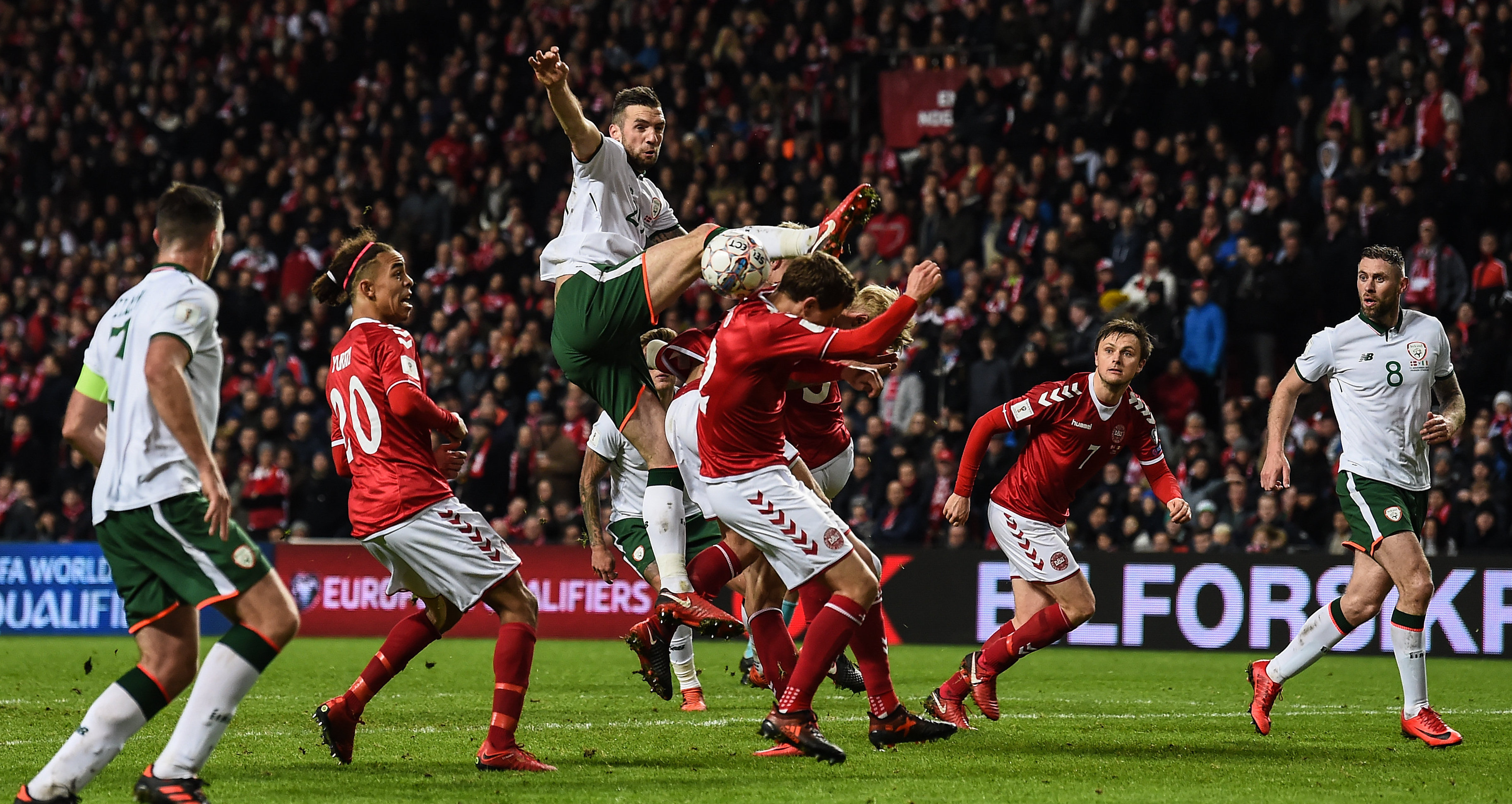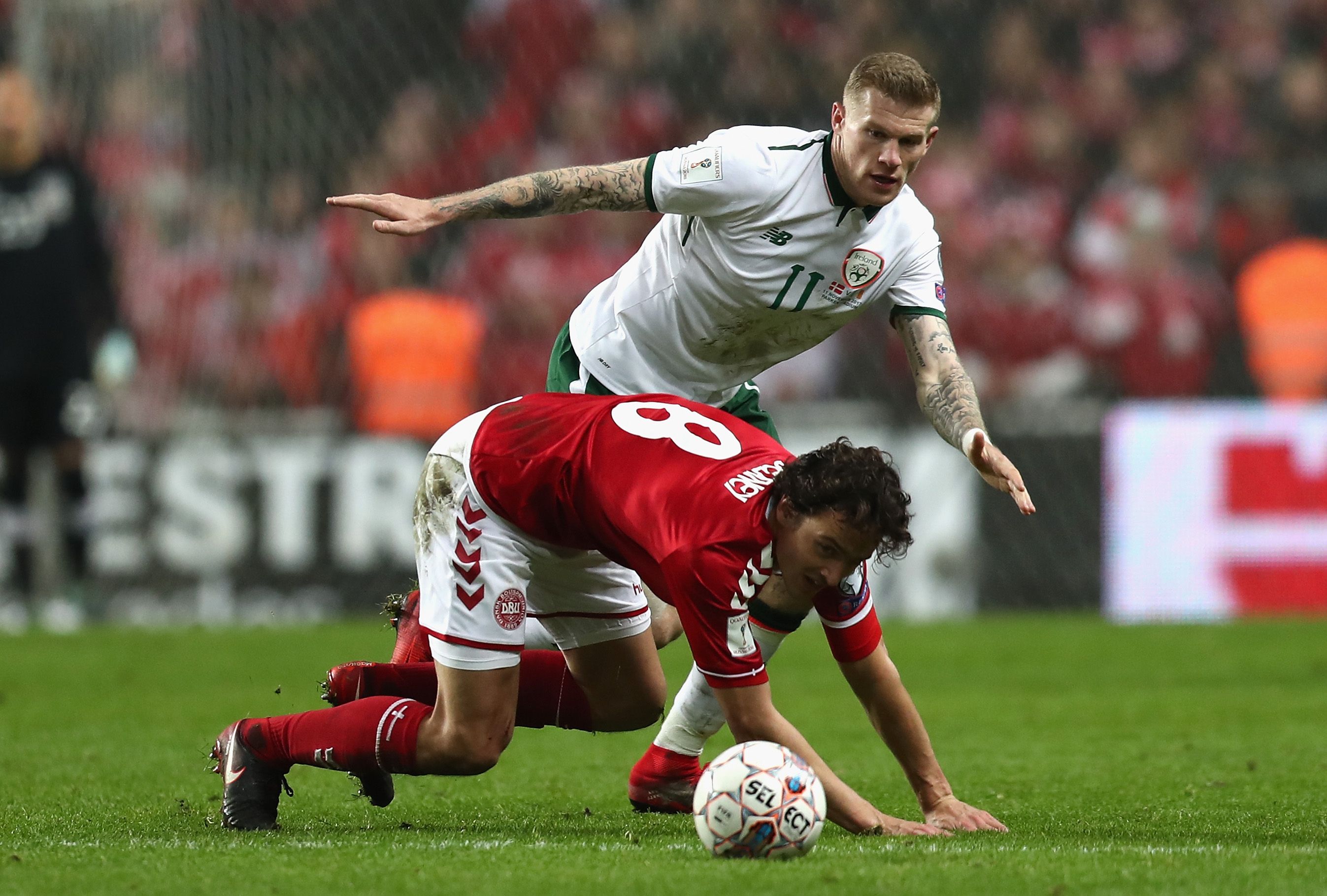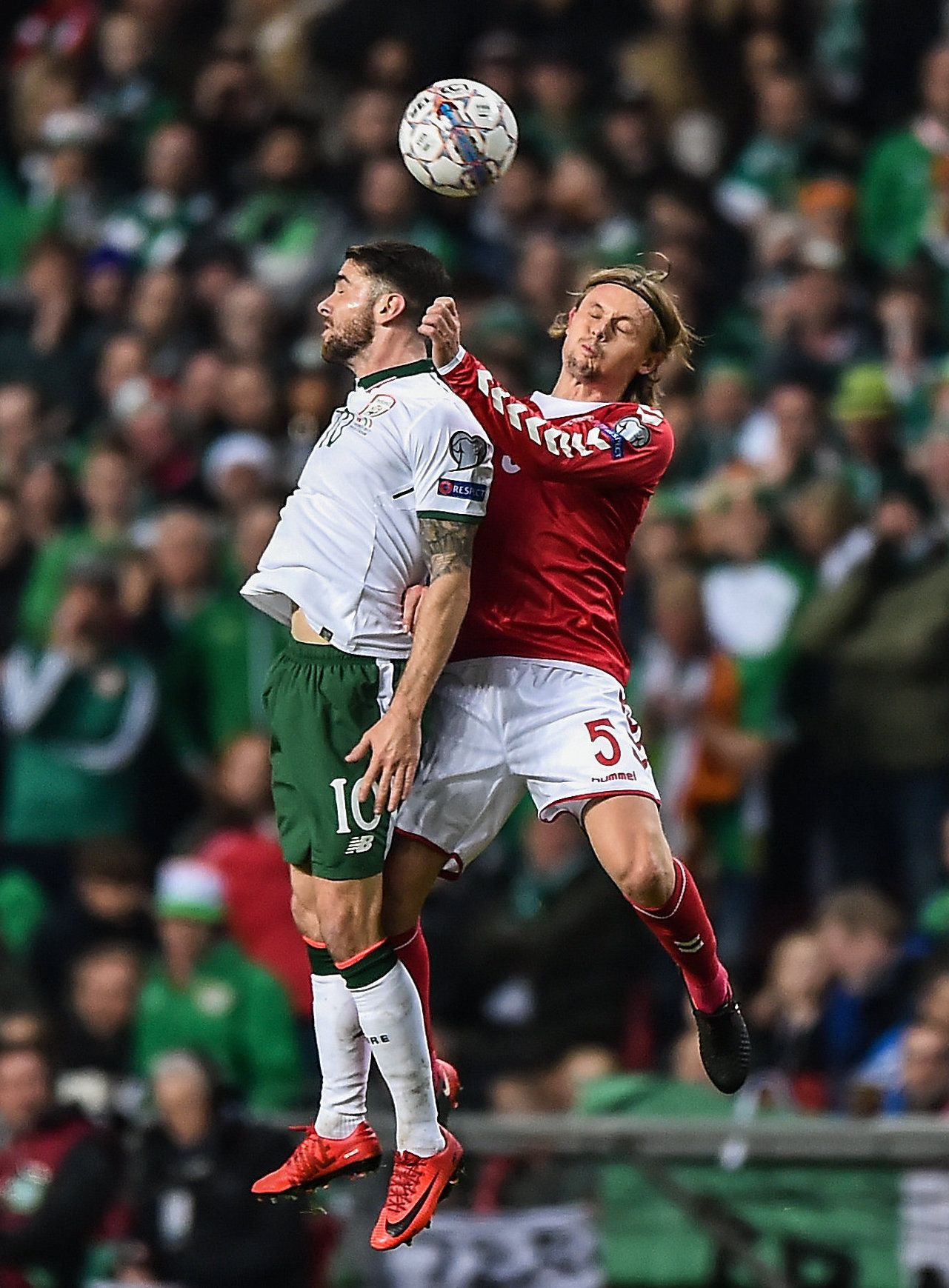

Share
13th November 2017
09:15pm GMT

O’Neill said they were used to this turnaround by now before moving on to other matters. Later on Monday, Age Hareide was answering a question about the fighting qualities of Ireland - a term which used to cause offence but now seems to be a polite way of saying Ireland aren’t very good - when he made a similar point.
Hareide refused to see any inferiority on the fighting spirit front and took it from there: “I think there are more players in our group used to playing tight matches three times a week, including in the Champions League. Our players are used to it. If it goes to extra time we have the squad to take that.”
This is all undoubtedly true. Denmark have a squad more experienced in European football which is used to playing tight matches three times a week, but this is a slightly different experience. The Aviva on Tuesday night is not Champions League football. It might not even be football as we understand it.

It is one thing to be accustomed to playing another game of football three days later, it’s another to have to play another game of football against Ireland again three days later.
“We will fight with them if they want to fight,” the Danish defender Andreas Bjelland added and you get the sense that Ireland would like nothing more than for Denmark to decide they had to fight if Ireland wanted a fight. Although if Ireland play as they intend to, Denmark might have no alternative.
O’Neill might have a expressed a wish that his side plays better football on Tuesday than they did on Saturday, but it may not be the top priority. A more urgent priority will be the need for Denmark to never, ever feel that they are in anything other than a fight.
The Ireland team as it is evolving under O’Neill has become a machine designed to test not just the motivation of its opponents, but all of their core beliefs.
At some point on Tuesday night, after another challenge from David Meyler or James McClean or a combination of the two, a Denmark player may find themselves questioning every life decision they’ve ever made that has taken them to this point.
 Ireland's games asks questions of the opposition, but not the ones we are told teams must ask. They are more profound questions based around the endless fight that the game becomes. The Danes might have been angered by David Meyler's words that "they don’t have the character and the heart and the desire that we have”, but if they try to prove him wrong they will play into Ireland's hands.
Ireland's games asks questions of the opposition, but not the ones we are told teams must ask. They are more profound questions based around the endless fight that the game becomes. The Danes might have been angered by David Meyler's words that "they don’t have the character and the heart and the desire that we have”, but if they try to prove him wrong they will play into Ireland's hands.
“They just want us to make the mistake. I don’t have the patience for that,” Hareide said on Monday as he promised to take the game to Ireland.
But Ireland’s game is not just about patience. If it was they surely wouldn’t give the ball away as often as they did. It is about preying on the impatience and frustration of their opponents with a wilful disregard for the ideas that are supposed to be central to football.
Ireland gave the ball away gratuitously on Saturday as if they were mocking the idea of possession. Instead they looked to lose the ball, to make the game as broken and incoherent as possible so that it became a test of will, a game where players might find themselves asking what’s it all about, the whole kit and caboodle, and other existential questions.
Those who complain about the style of football under Martin O’Neill or Giovanni Trapattoni had clearly been paying no attention to their previous careers. When Trapattoni became Ireland manager, an Italian friend of mine texted to say, ‘Prepare for no attacking football-ever.’ Yet it seemed to come as a surprise when Trapattoni turned out that way.
O’Neill may have had greater subtlety during his club career, but he has always relied on a certain rudimentary style too.
He would also feel as if he had no alternative when he took over in 2o13, that Ireland had to find a way to be competitive and there was no choice but to make it this way.

“It would be lovely to have a prolific goalscorer that you can turn to,” O’Neill said. “But if you don’t have that you have to find other ways, and that’s what we’ve had to do. We’ve been trying to find ways to win matches for a couple of years without possessing that goalscorer…there is a terrific spirit in the came, a never-say-die spirit. We have to find that one more time.”
In other words, the more expansive style O'Neill says he would like to see on Tuesday would be nice, but it mustn't jeopardise the core philosophy. Denmark must feel that the next 90 or 120 minutes are going to be horrible or Ireland will be granting them some relief. O'Neill has also taken huge strides from the Trapattoni era, allowing Ireland to win games they had forgotten how to win.Ireland have reached the play-off thanks to victories in Vienna and Cardiff and a point in a farcically bad game in Belgrade. They’ve also reached the play-off thanks to a defeat to Serbia, draws at home to Wales and Austria and a draw in Georgia when there was a chance of winning the group.
Ireland blew that opportunity because they always had another chance until they reached Cardiff. Now there are no alternatives. Ireland are a side that does better when there is everything to lose, when there is an urgency that comes from facing elimination and a fear that comes from thinking it all could end.
Those occasions play to the strengths of Ireland, they are the nights when the spirit O’Neill talks about really matters.
Hareide might be right when he says it is easier to stop than to create, but it takes some gifts from a manager to persuade players that they must abandon any innate desire they might have to create or play football in pursuit of a victory which isn't guaranteed. And it’s not easy to do it relentlessly, to stop the opposition all night when others might think of alternatives or an easier life.
The nights in Vienna and Cardiff in this campaign might have persuaded most people that O’Neill’s way is working. Cardiff was a night for doubters to convert, to accept that maybe O'Neill's way is working in part because of the lack of style.
This rejection of style pushes opponents to their limits and then pushes them again. And that's just when you have to play Ireland once. Who knows what playing them twice in three days will do to a team? Who knows what it does to a side's spirit?
Denmark are about to find out, and how they answer will send one team to the World Cup. Before that, there is one more night of agonising at the Aviva, one more night where Denmark will have to wrestle with the big questions as they find themselves wondering what it's all about. It will be one more night when Martin O'Neill trusts that the questions his players ask demand answers Ireland's opponents don't have.
Explore more on these topics: